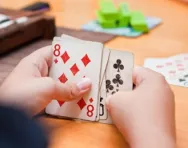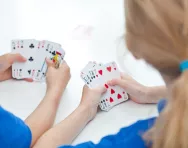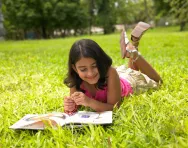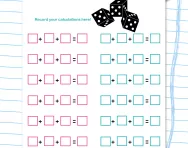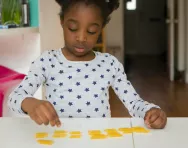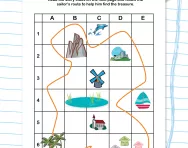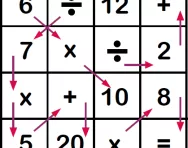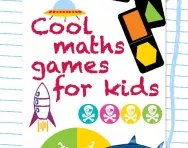Important update from TheSchoolRun
For the past 13 years, TheSchoolRun has been run by a small team of mums working from home, dedicated to providing quality educational resources to primary school parents. Unfortunately, rising supplier costs and falling revenue have made it impossible for us to continue operating, and we’ve had to make the difficult decision to close. The good news: We’ve arranged for another educational provider to take over many of our resources. These will be hosted on a new portal, where the content will be updated and expanded to support your child’s learning.
What this means for subscribers:
- Your subscription is still active, and for now, you can keep using the website as normal — just log in with your usual details to access all our articles and resources*.
- In a few months, all resources will move to the new portal. You’ll continue to have access there until your subscription ends. We’ll send you full details nearer the time.
- As a thank you for your support, we’ll also be sending you 16 primary school eBooks (worth £108.84) to download and keep.
A few changes to be aware of:
- The Learning Journey weekly email has ended, but your child’s plan will still be updated on your dashboard each Monday. Just log in to see the recommended worksheets.
- The 11+ weekly emails have now ended. We sent you all the remaining emails in the series at the end of March — please check your inbox (and spam folder) if you haven’t seen them. You can also follow the full programme here: 11+ Learning Journey.
If you have any questions, please contact us at [email protected]. Thank you for being part of our journey it’s been a privilege to support your family’s learning.
*If you need to reset your password, it will still work as usual. Please check your spam folder if the reset email doesn’t appear in your inbox.
Five fun maths activities to try at home
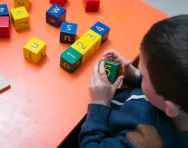
When it comes to helping our children with maths, many of us feel the panic rising – whether that’s because we struggle with number concepts ourselves, our because our children act like they’re being tortured. But helping your child to a better understanding and love of maths needn’t be hard work, says Alexandra Fitzsimmons of Maths on Toast, which organises community maths events for kids.
‘There are many ways in which we use maths in our own everyday lives, and if we recognise that and give ourselves credit for our own abilities, the sheer power of positivity will have a huge impact on our children,’ she explains.
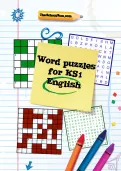
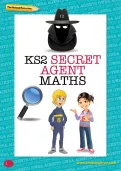
Claim four puzzle packs today!
- KS1 & KS2 Word Puzzle Packs
- Numeracy Puzzle Packs for KS1 & KS2
- Challenging and exciting | Boost key skills
We asked Alexandra to suggest some great ways to have fun with maths at home – with no special equipment required.
1. Board games
Your child may spend virtually every free minute playing video games, but how long is it since you dusted the board games off for a family games session?
‘Retro games like Snakes and Ladders, Shut the Box and the dice game Pig are brilliant for developing maths skills,’ Alexandra explains. ‘In Snakes and Ladders, for example, your child is counting all the time, working out how many places they need to move forward, what number they need to throw to get to the biggest ladder, and what to avoid so they don’t slip down the snake.’
Dice games also involve probability, with children figuring out how likely it is that they’ll throw a six, or whether sixes come up less frequently than other numbers.
Other board games that are good for building maths skills include Scrabble, where your child needs to add up the points for their word – including double and triple letter and word scores – and Battleship, which helps them practise using coordinates.
2. Baking
Any learning activity that results in cake is bound to be a winner with your child, and baking is a good way to help them become familiar with mathematical skills like weight and volume. ‘Cooking is great because you can adapt it to your child’s age,’ Alexandra says. ‘Younger children can simply help with weighing ingredients and reading the numbers on the scales, while for older children, you can make it more challenging by, for example, making a larger batch of cakes by doubling the recipe, or getting them to calculate the volume of your cake tin and work out how much of each ingredient you’ll need.’
3. Painting and colouring
On the face of it, there might not seem to be much overlap between art and maths, but getting the paints and pens out can be a good opportunity to talk to your child about maths concepts. ‘Colouring pictures with geometric patterns, or painting butterflies where your child paints one wing on one side of the paper and then folds it in half so it transfers to the other side, are really good opportunities to use mathematical language around shapes and symmetry,’ explains Alexandra. ‘Drawing also involves measuring, perspective and scale, for example by copying something but at a size to fit your paper.’
4. Origami
Paper plates, paper hats, flowers and swans… Origami is a thoroughly satisfying low-tech activity for kids, and is also a good way to encourage an understanding of many maths skills. ‘Paper folding involves making sense of, and using, precise instructions – a form of problem-solving – and also helps children to understand symmetry and 2D and 3D shapes,’ says Alexandra.
5. Holiday planning
Planning a holiday or day trip provides a whole raft of ways for your child to practise using everyday maths. ‘There are so many opportunities, from working out how long a journey will take and what time you’ll have to leave, to following maps, to reading timetables,’ Alexandra explains. ‘Even packing a suitcase is helpful in developing children’s spatial awareness, which is also a maths skill.’
Maths on Toast has lots of activities to help children find the fun in maths, including these great times tables games.
